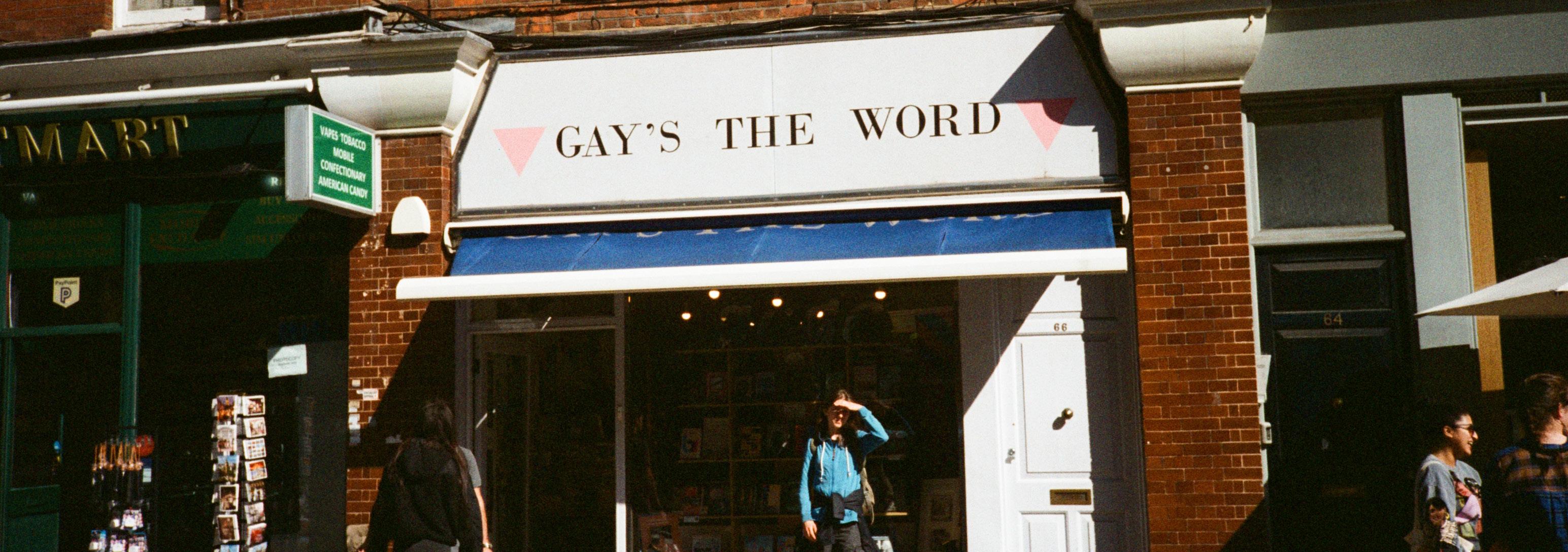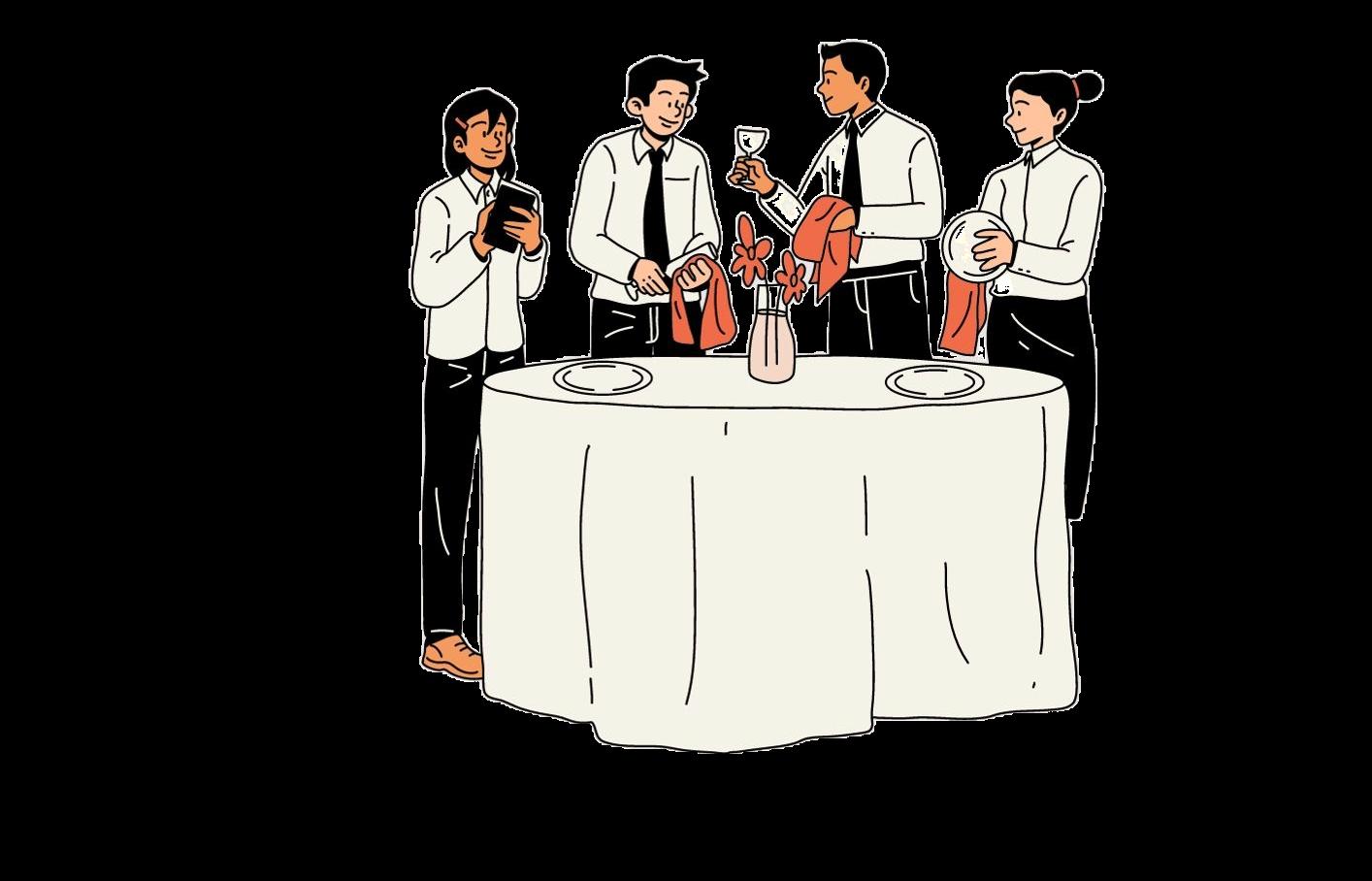CAM PUS CHRO NI CLES







3 Editors’ Foreword
4 Climate Conversations Coming Back to Campus byCiaKohring
6 A Bloomsbury Book Crawl byAliciaDoran
8 Capping “Low-Value” Degrees is Causing More Harm Than Good byIslaHemming
10 Why I Hate Freshers’ Week... and You Should Too byStaśKaleta
12 A Film Fanatics Guide to London by Sama Rabab

14 Freshers Blues: It’s ok to feel lonely byConorWalsh
15 When Cultures Collide; How India found its way to Hungary without a Schengen Visa ByTarishaKaushik
16 London on a Budget; Tips for Making some Extra Money ByZoeElisabeth Dahse
18 Meet the team
We are delighted to welcome all incoming freshers to UCL, and to warmly introduce you to the brilliance of Pi Media, with this pre-emptive magazine handcrafted by our student community, sharing our experiences of all things UCL. And, of course, a hearty welcome back to our returning students and readers.
With this issue, we bring you anecdotes, guides and perceptive insights about beginning university in London, whether that is starting completely fresh or kicking off your new academic year, that we hope connect, inspire and prepare you for the forthcoming few weeks.

While Freshers can be an intimidating time, it is an inevitably formative experience, thus, Campus Chronicles hopes to lead you through some thoughtprovoking conversations and musings about starting, or returning to, university. And we hope your journey is filled with laughter, friendships, music, love, growth and compassion.
As such, we are thrilled to present the 2023 edition of Pi Magazine’s Freshers’ Edition: Campus Chronicles!
Coco Kemp-Welch & Antara Basu Editors-in-Chief, 2023-24Ithasbynowbeenwidelycommunicated that summer 2023 broke an unprecedented number of climate records. With the extreme conditions of July and August, United Nations Chief Antonio Guterres pronounced that “The era of global warming has ended” and the “era of global boiling has arrived”. The ten broken records were, however, not limited to temperature rises but included a variety of changes in climactic factors globally. While places like Greece and Phoenix experienced up to 31-day heatwaves, the UN also reports that wildfires nearly wiped out the Maui town of Lahaina and that Beijing fell victim to wildfires and hitherto unparalleled torrential rains, resulting in urban destruction and dozens of deaths by flooding.
Now, many students will return to campus this September with anecdotes of leaving Rhodes just before the wildfires led to evacuations or innocent complaints of London’s frequent 30 °C humidity this summer. What I wish to stress is the importance of reflection and the care we take in climate c onversations this Autumn. When I keyed in ‘heatwave 2023’ back in July, the first articles to pop up were headlined with questions like ‘Is it safe to travel to Italy, France and Spain now?’ or ‘European heatwave 2023: Can I get a refund if I cancel my holiday?’, followed by a few articles that mention Asia, Africa, climate change and future predictions in their titles; if you put in a bit of effort and scrolled down the search results.

The primary issue with these articles is a neglect of the fact that climate change affects people disproportionately, where marginalised and low-income groups are impacted most severely by climate change. For example, many women in the Global South live in areas at high risk for climate disasters while representing a large percentage of poor communities most dependent on local natural resources for their livelihoods and work- with women making up 50-80% of the world’s food production workforce according to the UN. Similarly, indigenous groups’ reliance on environmental resources places them among the first to face direct consequences of climate change. Unfortunately, climate-induced land loss combined with their minority status often leads to further political and economic marginalisation from dominant societies that trivialise or ignore their needs.
Still, and perhaps not surprisingly, the media has thus far shown an overwhelming interest in those whose livelihoods, security and rights are not most severely affected- by which I mean people residing in developed areas that the West has declared ‘core countries’(wealthy and industrialised states which middle and low-income nations rely on for economic aid).
UCL is renowned for its diversity as an institute, hosting staff and students from over 150 different countries. Today, globalisation and its intertwining of cultures means we should never take an individual’s personal experience with the climate crisis for granted. Though climate discussion and work towards a greener future are core values at our academic institute, we must not forget compassion and sensitivity when engaging with other community members.
For individuals whose primary contact with climate change is via news platforms, it may be easy to desensitise to the topic. For others, climate change is a substantial emotional anxiety or even a personal burden. Gauging a person’s resistance to the subject is the first critical step for any conversation driven by emotional intelligence. If it feels right, then asking questions may follow, as long as you allow yourself to listen, verify that you’ve understood and leave the other party time to reflect. Of course you can tell your own story, your concerns and how you came to engage with climate questions. Sharing is a powerful tool in spreading knowledge and empowering ourselves. I only encourage remembering that every conversation should be founded on respect and treated as a mutual learning opportunity.
So, let us make the effort to engage in fruitful, considerate conversations.
“
The primary issue with these articles is a neglect of the fact that climate change affects people disproportionately ”
Looking for something to fill your days during freshers week? I’m hoping you’re not too hungover to read!
UCL’s Bloomsbury campus is a walkable distance from a number of unusual and historic bookshops, lots of them being iconic pieces of London’s cultural life. Heading out on a literary shopping (or window-shopping) tour is a fun way to get to know the area.

The formidable and unmissable Waterstones Gower Street is a staple for UCL students. It’s a stunning building, and absolutely huge – spend all day browsing their expansive stock of new and second-hand books, sustained by tea and cake from the cosy cafe Dillon’s, which is also a popular study spot.
Marchmont Street, near Russell Square, is home to the UK’s oldest and most renowned LGBTQ+ bookshop. It’s got a great selection of novels, poetry, non-fiction and art books relating to gender and sexuality, ranging from classic to contemporary, and is a beautiful, important celebration of queer culture and history.
Also on Marchmont Street, but this time tucked away in the basement of the Brunswick Centre, Skoob is an underground treasure trove of second-hand books. I love trawling through the titles and discovering something old, but new to me, and it’s a good place to pick up collectibles like vintage orange Penguin Paperbacks, or green-spined Virago classics. They also have a nice selection of posters and postcards, if you’re looking to decorate your new room in uni halls.
Another Marchmont Street gem! Judd’s is where I go when my purse has been drained by impulsive Gay’s the Word or Waterstones purchases and I’m looking for a bargain, as they often have new novels at half of the usual price. They specialise in second-hand academic books and have impressive history and art sections.
Perhaps the most charming and unique bookshop in London, Word on the Water is a book barge, moored in Regent’s Canal a few minutes from Kings Cross. It’s unbelievably quaint and picturesque, and definitely a bucket-list browse. They also host talks, open mics and music events on the barge’s rooftop stage. And if you’re lucky you might just be able to have a one-off with Jazz, the resident talking parrot, and grab cuddles from their four-legged furry friend Star.


The London Review of Books is widely considered the most successful literary publication in Europe. Their bookshop on Bury Street becomes an event space twice a week and hosts exciting high-profile readings and discussions. It’s a very scene-y book spot and quite a charming space which stocks books that are “intelligent without being pompous; engaged without being partisan; fun without being frivolous”, reflecting the magazine’s ethos. Inside you’ll also find the charming London Review Cakeshop to satisfy your cravings should all the book browsing leave you peckish.
Housmans in Kings Cross has been open since 1945, making it “the longest continuous-running radical bookshop in Britain”. As this accolade suggests, they specialise in texts of radical and progressive politics, including pacifism, anarchism, racial justice, feminism and environmentalism. As well as books, the shop stocks a large range of radical pamphlets, periodicals and zines. There’s a “bargain basement” offering second-hand titles for just £1!
Bookmarks in Museum Street, near the British Museum calls itself ‘The Socialist Bookshop’ stocking a wide range of excellent pieces on liberation movements, marxism, feminism and gender, labour history, black history and more. Every day, they set up a collection of second-hand books, selling for £1 out on the sidewalk. If you scour carefully enough, you might stumble upon some delightful treasures including older publications with drawn maps, and quaint language pocket dictionaries. It’s the perfect place for all who fancy browsing through a pretty tough-to-beat philosophy, history and politics section.


 by Isla Hemming
by Isla Hemming
Prime Minister Rishi Sunak is currently advocating for capping “low-value” degrees - defined as having minimal prospects in terms of acquiring a high-paid graduate job or high dropout rates - in the hopes of protecting the next generation of students and boosting economic growth. Placing a value on degrees results in damaging the enjoyment of learning and developing skills that are personal to the individual student’s career prospects.
The idea that too many students have been “sold a false dream” by universities – choosing to study a constricting degree – encourages students to only pursue respectable degrees in order to be employable. There is no clarification on which courses are at risk however it is assumed that the arts are the most vulnerable because the creative aspect integral to these subjects is not always suitably adapted to many job roles due to their niche nature.
Creative arts graduates are already facing the highest unemployment rate of 6.5 per cent, compared to the average of 5.9 per cent; this is likely due to existing prejudice against degrees that do not have a clear career pathway or graduates favouring non-graduate job roles and rejecting conventional career paths. According to Prospects Luminate data, only 56.5% of creative arts graduates are working for an employer which is significantly lower compared to the 68.1% average across all other subjects. In contrast, nearly 13% of creative arts graduates report either being self-employed/freelancing (entrepreneurship) or developing an artistic portfolio. This figure is higher than the combined average of 2.2% across other subjects.
Restricting learning opportunities for niche or creative degrees without offering alternative pathways or courses is detrimental because it hinders the ability of many aspiring creatives to fulfil their aspirations. Creating alternatives, such as apprenticeship schemes, for these degrees with ambiguous career paths is challenging as there is not a direct job that it will lead to. This also requires great investment and could be more harmful to the economy than university loans.
The value of a degree is likely to be measured by its economic value due to Sunak’s focus on economic growth within the UK’s current cost of living crisis and recession. This places pressure on “low-value” degrees as it tends to lead graduates into lower-paid jobs alongside having to pay back student fees. Not everyone obtains a job based on its pay so why should these careers be penalised against?
The reduction of these “low-value” degrees could prevent the UK’s economy from being more productive as the proportion of educated workers in a variety of industries decreases. There would be fewer educated workers to efficiently carry out tasks due to a lack of the required specialist skills - this can also cause the UK to be behind industry standards from across the globe.

Statistics gathered by the Higher Education Funding Council for England suggest that one in twelve students leave higher education during their first year with more than a third considering withdrawing. This information does not directly point to “low-value” degrees and proves that other factors should be considered when considering capping degrees. It is likely that external pressures could be causing these figures, potentially isolation or understanding that university is not for them, rather than the “low-value” degree being at fault.
The labelling of “low-value” degrees is likely to be more detrimental for working-class students due to the pressure of securing a degree that has clear career prospects or can guarantee a high-paid job. The lack of financial freedom reduces their ability to choose a degree based on enthusiasm and instead dependent on whatever is a safe option - due to not having a safety net to fall back on. Less affluent students are already at risk of facing high drop-out rates due to financial constraints and lack of family support so the labelling of “low-value” degrees can make certain degrees seem like a gamble.
By cracking down on degrees that do not lead to direct career paths, students are likely to be turned off entering a capped course with concerns of it damaging their ability to obtain a high-level graduate job. Reducing the number of students that can study these degrees makes it harder for students to go on to further education which causes students to lack specialised knowledge for their chosen career.
The concept of valuing a degree based on its employability is not appropriate for all subjects since each graduate is different. Students have a multitude of reasons for pursuing further education or what they are hoping to achieve with their degree. Therefore, when choosing to study for a degree, students shouldn’t be concerned about whether it restricts their career prospects.
Less than half of graduates are working in a career that relates to their degree which shows that “low-value” degrees do not act as an obstacle when applying for jobs, but instead should be just as encouraged as high-value
You probably know what to expect from freshers’ week.

Chances are you’ve read one of the many online guides, about what to do and who you’ll meet – from ‘The Kitchen Offender’ to the ‘Fluffy Dressing Gown Queen’. You’re probably feeling nervous, but also excited to finally get started. You want to make the most of your first few days at university.
Unfortunately, I don’t believe being a fresher is everything it’s made out to be. Everyone will have their own opinion, but I don’t think freshers’ week currently does the one thing it’s supposed to do: prepare you for your university experience.
First of all, it encourages you not to be yourself. You’re driven to make new friends and become popular as soon as possible, and that stimulates an exaggerated need to impress. In turn, you’ll likely be introduced to cultures you may not want to be a part of, especially excessive drinking cultures. You’re told to make it a week to remember when many of you probably won’t remember most of it.



To make matters worse, you’ll inevitably get some form of that mysterious freshers’ flu and end up fatigued before term even starts. Freshers’ week is based on such short-term thinking when it should be preparing you for the long haul that is university.
This is particularly frustrating because freshers’ week is an amazing opportunity. For many of you, this will be your first time living away from your parents or spending most of your time without them. The key to being a fresher and making the most of this change is venturing out of your comfort zone, but doing so in a healthy way. Going out, trying new things, and making new friends will be so beneficial, as long as you remain true to yourself. That way you’ll find the people you actually like, do the things you genuinely love, and you’ll be far better prepared to shape your path.
Remember that it is in your interest to make the most of this week. For a surprising proportion of students, the returns from university are minimal – around 25% of men and 15% of women graduates in England would have been better off financially had they not enrolled at all. Those who take the least out of their university experience have been badly prepared or pressured to give up, and are in turn left unready for future life. It makes sense to avoid this and make the most of your
The idea of being a fresher makes sense. You’re new to the experience and you need easing in. But a freshers’ week isn’t always what it’s made out to be. This revised, fresh approach might better prepare you to make the most of your first week, and then the rest of your time at university.

“You’re told to make it a week to remember when many of you probably won’t remember
As the Autumn term approaches and freshers’ week looms ahead, what better way to celebrate starting university in London than exploring the many famous filming spots in the city? London has had its fair share of screen time in cult classics and world-renowned movies and I’m sure you’ve seen some of its many l andmarks in your favourite movies. So why not go discover the movie sets of London in the flesh?

To any Harry Potter fan, Kings Cross is a must-visit. Just a short walk from UCL’s Bloomsbury campus, You’ll find Kings Cross Station where Harry Potter famously took the Hogwarts Express to Hogwarts every September 1st. Although you won’t find an actual platform 9 ¾, you will find a Harry Potter shop where you can purchase merchandise and take a picture as if you are run ning through a brick wall with your Hogwarts trolley.

Notting Hill is famous for many things but mostly for its part in the cult classics Love Actually and Notting Hill. At Portobello Road you can find beautiful shops and cafes, and none other than the famous blue door, the entrance to Hugh Grant’s home in Notting Hill, at 280 Westbourne Park. You can also find the famous ‘travel bookshop’ from the movie which is actually a Notting Hill souvenir shop, so it’s perfect for a photo opportunity and a little shopping spree! Notting Hill is also home to the bright pink house from Love Actually where Andrew Lincoln declared his love for Keira Knightly. To find this location head over to St Luke’s Mews.
The Old Royal Naval College, one of Greenwich’s most popular landmarks has been a staple location in many movies over time, including Thor: The Dark World and Pirates of the Caribbean. It is also home to the set of the 2012 musical Les Misérables, where the Naval College was transformed into the streets of 1800s Paris. Greenwich is a beautiful place to explore, with its rich maritime history, sprawling greenery and the Royal Observatory, and while you’re there why not try and see how many movies you can recognise that have been filmed there?
Borough Market is one of London’s most popular foodie markets and is worth a visit whether or not you’re a movie fan. However, if you are the latter then you should know that just around the corner of the market is Bridget Jones’s Apartment from the classic rom-com Bridget Jones’s Diary. Located on Bedale Street is The Globe Tavern, the pub under Bridget’s flat. So when you’re in the area you can pop in for a drink, and explore the other spots that the movie features.
And so the list goes on, London has an incredible amount of landmarks that have been featured in too many productions to count. Just by taking a stroll through the streets of the city, you’ll most likely stumble on a film set or two. The streets of London are filled with movie magic and it is a beautiful place to explore through the lens of your favourite movies.
Freshers week is a world renowned phenomenon. It seems that everyone has big expectations: club nights, loud music and enough alcohol to sink a ship. But this dream of there being one long party is nothing more than a myth – oftentimes, freshers week is more of a nightmare.
Loneliness is a common feeling in university, but one that few people talk about. Alongside issues of anxiety and stress, loneliness is a significant mental health issue. Data from the Office of National Statistics (ONS) reveals that over 15% of students feel lonely on a weekly basis, while another third feel lonely on a monthly basis. These figures are stark. They reflect the reality of university and the major lifestyle changes that students experience.
Starting a new course and, more crucially, moving away from home, is a big deal. For many, this is the first step into adulthood. The emotional turmoil of this transition cannot be underestimated.
In the digital age of social media, this experience of loneliness is exacerbated. As you scroll through your ‘insta’ feed, already feeling homesick or out of place, the last thing you want to see is other people having a good time. Living in London, a city that is isolating by its sheer size, is a further issue in its own right.
By Conor WalshBut ultimately, feelings of loneliness are commonplace. As cliche as it sounds, people who feel lonely are not alone. Aside from friends and family, there are many places you can turn to when you are feeling isolated: the NHS has a great page on mindfulness, which is especially good for those of us who are more emotionally reserved. There are tons of activities throughout freshers week and beyond that you can get involved with; joining clubs and societies are a fantastic way to make friends outside of your course and accommodation, whilst volunteering opportunities can provide you with a sense of belonging and connection on to the local Bloomsbury community.
There is much we can do to tackle loneliness more generally too; talking openly about things is a great place to start. We tend to discuss mental health issues on a frequent basis – how it is ok to be anxious about exams, or stressed over relationships. But the feeling of loneliness rarely comes up. We need to think about why that is, and do our best to reach out to those who might be socially isolated. Accepting that it is natural to feel lonely is important. To the dismay of many, life is not all singing, all dancing all of the time. The sooner we come to grips with that, the better.
So as you navigate the whirlwind of freshers week –awkward encounters and repetitive conversations –remember it is normal to miss your friends and family. We all feel lonely at times, it is a shared human experience, and with such high hopes and expectations, it is easy to feel underwhelmed.
University is no walk in the park – you are likely to laugh and cry in equal amounts. So be kind to yourself, and if you see someone who looks left out, be a good samaritan and say hello. Despite our inability to talk about it, it is ok to feel alone.

To start at the end , this is nostalgia long before it’s due. It is the beginning of term, a conjunction between two lives for incoming students. Bricks for a new home have been laid, the aroma of coffee permeates the chilly autumn air and a monotonous slurry of introductions is anticipated. In this story, India and Hungary were serendipitous neighbours, a geographically unimaginable fate but our fate nonetheless.
I met my roommate Zsófi on my very first day in UCL halls. We arrived in London in September, but it is the orange hues in October that I cherish most. There are orange sunsets at Primrose Hill, orange pumpkins and candy, spider webs and skull-shaped candles. But I also missed the seasonal orange hues back in India filled with marigold flowers, sandalwood powder and hundreds of lit ‘diyas’ (oil lamps made of clay). It was the same colour yet a strange new feeling. In my journey of finding familiarity in a strange country, I found another orange - paprika. I find it essential to lay emphasis on the spice I discovered in my multicultural friendship, one I’ve grown to adore in homemade Hungarian Gulyás. In the cloud-covered greys of London, the warm potato soup Zsófi prepares became my comfort food and in turn, I like to believe that Zsófi finds solace in the subtle sharpness of garam masala in khichdi (A rice-lentil dish in South Asian cuisine).
In this valuable exchange of cultural intricacies and linguistic exchanges, Zsófi gained knowledge of the variations of the ‘t’ sound in Hindi and the importance of ‘arey’ in daily idyllic conversations while I have discovered the remedy potion Pálinka, I have laughed, until in tears, while practising Hungarian tongue twisters and crafted code words infused with cultural allusions.
By Tarisha Kaushik


When transitioning into this new university life, there is rarely a singular moment when you realise that you’ve found your people, your home away from home. For us it was culinary experiments with spices from each other’s homeland, picking up curse words from languages we don’t speak because we hear them too often but if I had to pick one moment, it was when I started saying the words “see you at home”. In this home, there are Diwali celebrations where we dance to popular Bollywood choreographies, build an Advent calendar and celebrate ‘névnap’ (name days) with flowers we keep in empty wine bottles. We leave notes in the ‘Secret Diary of Bloomsbury’ in Russell Square Gardens. We make mulled wine at home on Saturday nights and wake up to the smell of freshly baked focaccia with basil and rosemary taken from our window sills on Sunday mornings. Our days end with the words ‘shubh ratri’ (goodnight) and ‘jó éjszakát’ (goodnight) because those are the words we hear at home.
While these anecdotes are a tale of reminiscence, dear freshers, this is a glimpse of the home you can hope to find. London is famous for its greys but it is the fall, the season of the famed pumpkin spice latte and a search for your orange.
 By Zoe Elisabeth Dahse
By Zoe Elisabeth Dahse
Are you a student feeling the pinch of the cost-of-living crisis? Is freshers week putting an additional strain on your wallet? You are not alone! According to a survey by the National Union of Students (NUS) 96% of students are cutting down on spending due to the ongoing economic situation. With student accommodation prices soaring by 61% over the past decade and inflation currently at 6.3%, the struggle is real. The financial strain has even led to some students missing classes, or cutting back on extracurricular activities in an attempt to save money, as revealed by another NUS survey.
But fear not fellow scholars! Many UCL students take on part-time work alongside their studies to help fund their busy student lives living in London, which can be very expensive. There are plenty of flexible job opportunities waiting to help you bridge the financial gap. And the good news is that you can balance these alongside your studies.
Companies like High Society, Flutes, HOST Staffing, and Stint allow flexible shift patterns at events all over the city. It’s easy to apply as no prior experience is required, and you can expect to earn the London Living Wage. Most shifts take place at cool events such as BST Hyde Park or the Chelsea Flower Show. Meals are often included, and you can even earn tips. The process is simple: register online, attend an induction day and then you can start working!
UCL JobShop updates its listings regularly with new job opportunities, be that a Photojournalist for the Students Union, working in a UCL Café, or an external business looking to hire students part-time. Stay in the know by checking their page regularly, or signing up for their newsletter. Henrietta, a History of Art student, recently started working at a UCL bar, and she says, “the job helps me keep organised and in control of my schedule, and I also really enjoy it. I love that I can work on campus as well and don’t have to travel far after class for a shift.”
Share your valuable feedback to your department to earn Love2Shop vouchers, for popular brands such as Waterstones, Argos, and River Island. Make sure to regularly check your inbox for newsletters advertising these opportunities.
Showcase your love and show off your insider knowledge of UCL and all things London by signing up to become a student ambassador. You will advise new and prospective students, and help out on open days, and at graduation ceremonies. It’s fun, casual work with no minimum time commitment which means you can work when you have the time.
In your second year, consider applying to become a Transition Mentor for your department where you will guide first-year students during their first term at UCL. Applications are usually advertised in May and you can even apply to become a Senior Mentor in your third year or return as a Transition Mentor. As 3rd-year Data Science student Phillip says, the role “helped [his] leadership skills and planning skills.” These skills are highly transferable and sought-after by future employers.
Handshake, Unitemps, LinkedIn and the UCL Careers Service are great platforms to assist you in your job search.
Lastly, don’t be afraid to try it out the traditional way! Look in your local area for opportunities listed in shop or restaurant windows, or go in and ask the owner if they are looking to employ someone. You never know: they just might be!
Gaining work experience while studying is an excellent way of demonstrating your skills for future employment. Student jobs build teamwork, leadership, and timemanagement skills which are highly valued in the job market. So as you embark on your job search journey, keep these tips in mind, and may the odds be ever in your favour.












